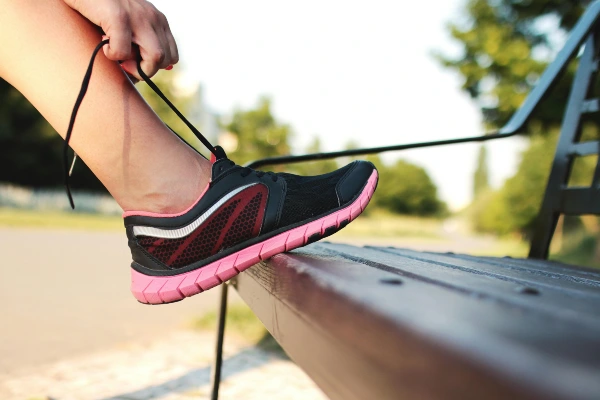Foot Problems:
Footwear
Footwear & Your Foot Health
At Podiatry International, we believe that choosing the right footwear is one of the most important—and often overlooked—steps in maintaining healthy feet. Footwear affects your posture, gait, and pressure distribution, and wearing the wrong shoes can lead to long-term foot problems, including corns, bunions, calluses, plantar fasciitis, and joint pain.
Fashion trends may influence your choices, but your feet deserve better than narrow toe boxes or unsupportive soles. With the right shoes, you can enhance comfort, prevent injuries, and support your entire body.
Smart Shoe Shopping Tips
- Measure both feet while standing, as one foot is often larger than the other
- Try on both shoes, and walk around to ensure comfort
- Buy for the larger foot—you can always add an insole to the smaller one
- Don’t expect shoes to “break in”; they should feel comfortable right away
- Shoe sizing varies—ignore the number and focus on the fit
- Shop in the late afternoon or evening when feet are slightly swollen
- The widest part of your foot should align with the widest part of the shoe
- Look for shoes with a firm heel counter, supportive cushioning, and flexibility at the ball of the foot, not the arch
- Avoid tight toe boxes—your toes should have space to move
- Wear the same socks or orthotics you plan to use with the shoes when trying them on
- Bring your custom orthotics if prescribed, and test the fit with them inserted
Footwear for Sports & Activity
Footwear for athletics must be more than trendy—it must be functional and sport-specific. Wearing the wrong type of athletic shoe can lead to sprains, shin splints, tendonitis, or joint strain.
Recommendations:
-
Use running shoes for running, court shoes for tennis, and cleats for soccer—each is designed for the demands of that sport;
-
Cross-trainers may be fine for light activity but not ideal for sport-specific performance;
-
Replace athletic shoes regularly—worn soles and compressed cushioning can harm your feet and knees;
-
Inspect your shoes for uneven wear patterns, which might signal a biomechanical issue worth evaluating.
When to See a Podiatrist
If you regularly experience foot fatigue, pain, or feel that no shoe seems to fit properly, it may be a sign of a structural foot problem. Our team at Podiatry International can:
-
Evaluate your gait and foot structure
-
Recommend orthotic-friendly shoes based on your needs
-
Fit you with custom orthotics to improve alignment and comfort
Book an Appointment Today
Your feet deserve the best care. Schedule your podiatrist visit now and start your journey to healthier, pain-free feet. Located in Barbados.

